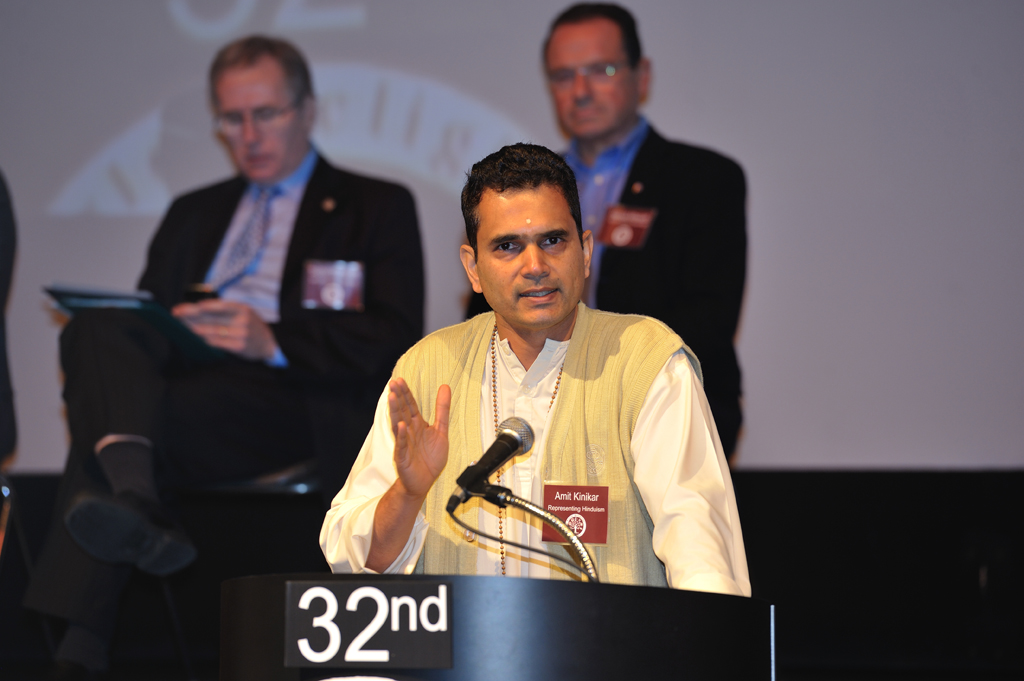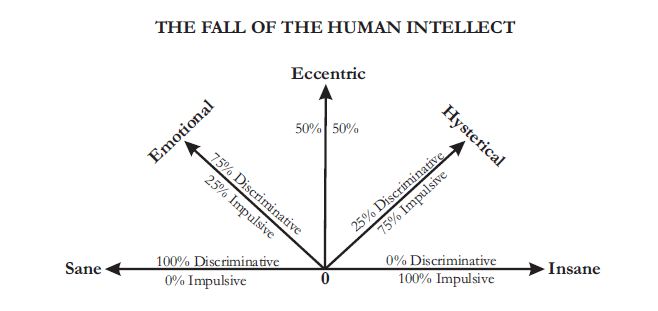Idea of an Ideal Government
Hindu Perspective
by Amit Madhusudhan Kinikar
Minister and Founder of the Vedanta Cultural Foundation Canada

Abstract of Theme Speech
Any Government is run by individuals. And they alone can make it ideal. Therefore, in this essay we will focus on an individual or a leader. What makes one an ideal leader? Which automatically reflects in his or her government style to make it an ideal Government.
One cannot govern or manage anything external; whether it be a family, corporation or a nation, if one cannot manage oneself. Therefore any government or management boils down to self-management. And self-management is how your intellect manages your mind.
The body per se cannot act. The actions of the body emanate from one’s mind and intellect. They are driven either by the likes and dislikes, feelings and emotions, whims and fancies of the mind or the reason, discretion, judgement of the intellect. The intellect is the ability to think freely, logically. The faculty to reason and judge without bias. When you develop a strong intellect your thinking becomes clear, your reasoning precise and judgement perfect. The intellect therefore must govern and guide the mind at all times. An ungoverned mind could turn ruinous and destroy the individual.
When the impulses, feelings of the mind drive actions without the guidance of the intellect then such actions would be impulsive. And when intellect controls and directs the mind to act those actions would be discriminative. Discriminative actions determine the sanity of the person. As impulsive actions displace discriminative actions he would gradually lose his sanity. The figure below shows the loss of intellectual application resulting in the deterioration of a human being.
A renowned playwright, William Shakespeare has demonstrated this fatal consequence in King Lear, Macbeth, Othello and his other plays. A leader therefore has to be as close to OA as possible.
Thus all management skills reduce to self-management. And self-management depends upon the development and the use of the intellect. Intellect is not intelligence. Intelligence is information or knowledge acquired from the external educational agencies while the intellect is developed through one’s personal effort in thinking, reasoning, questioning. Just as you would develop a muscle by working on it. Even to use intelligence one needs a powerful intellect.
Few Qualities of an ideal leader
1. Objectivity:
Objectivity is intellect controlling the mind in all the decisions, actions. Not being impulsive or rushing into action. Holding the mind on the present action without allowing it to slip into the past worries and future anxieties. Maintaining a spirit of detachment in the action. This is highlighted in Mark Antony’s oration in Julius Ceaser. Mark Antony had the tremendous task of turning the whole mob against Brutus and the conspirators who had justified the assassination of noble Ceaser. Antony felt obliged to expose the villainy of the conspirators. Went about it meticulously in a spirit of detachment. At the end of his brilliant oration he left the result for destiny to work out-mischief thou art afoot, take thou what course thou wilt.
2. Spirit of Service and Sacrifice:
A leader’s obligation lies in merely performing his duty and responsibility without polluting it with personal motives. He should dedicate his work for the wellbeing of the people even at the expense of personal interest. Give rather than take. Such actions will command strength and power and inspire people.
3. Lead the Way:
A leader should not merely point the way. He should tread the path himself for others to follow. “Whatever a leader does the masses follow, whatever standards he sets his followers emulate them”. The subjects of a state emulate their ruler. It is not what he says that matters but what he does. Therefore, he should fix an ideal beyond his self-centered interest. Embracing the welfare of the larger community. And strive tirelessly to achieve it. Masses will follow.
4. Identification, Empathy:
A leader establishes his authority, power more through identification with, feelings for others rather than his position or status. The natural feeling of empathy brings about a rapport, a spirit of cooperation. The emotion of love also creates an atmosphere of understanding among the people. Such feeling and understanding fosters the attitude of service and sacrifice.
5. Humility:
A leader understands that he is a spoke in the wheel. In the orchestra of life each one is unique, has a different talent and a role to play. And he plays his role to the best of his ability with the understanding that he is neither dispensable nor indispensable. Thus it can be seen that it is the individual endowed with a powerful intellect and the above qualities would make an ideal leader. In ancient India kings themselves were sages Rajarishis. Raja means King and Rishi means an enlightened person. Kings led saintly lives. A life based on the higher values. Such leaders form the sap of an ideal Government. And lead it, through sound policies, stemming from the knowledge of higher values of life and living enunciated in the scriptures, and above all by personal example. Then there will be peace, harmony and prosperity in that society.
Source: Bhagavad Gita Chapter 2,3,4,6 and 18.


